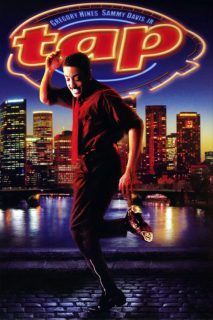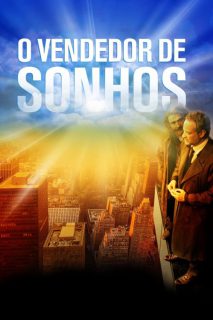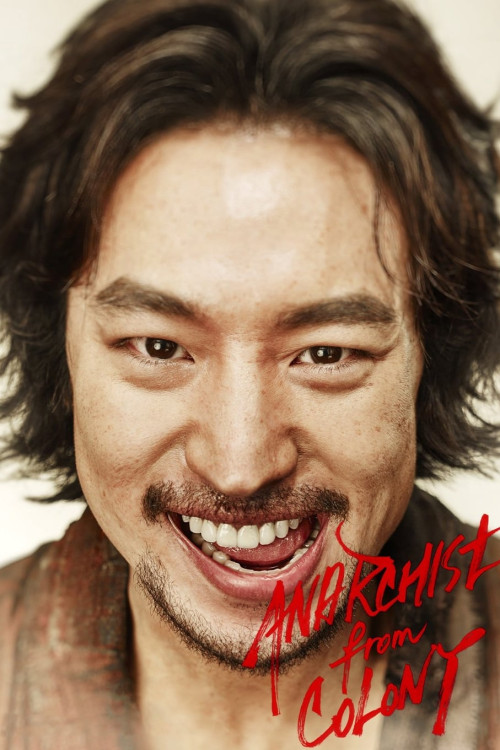
- Year: 2017
- Released: 06 Jul 2017
- Country: South Korea
- Adwords: 24 wins & 24 nominations
- IMDb: https://www.imdb.com/title/tt6903980/
- Rotten Tomatoes: https://www.rottentomatoes.com/m/anarchist_from_colony
- Metacritics:
- Available in: 720p, 1080p,
- Language: Korean, Japanese, English
- MPA Rating: N/A
- Genre: Biography, Drama
- Runtime: 129 min
- Writer: Seong-gu Hwang
- Director: Joon-ik Lee
- Cast: Lee Jehoon, Choi Hee-Seo, Soo-Jang Baek
- Keywords: court, independence movement, anarchist, 1920s, korean resistance, japanese occupation of korea,
 | 6.6/10 |
 | 86% – Critics |
 | false% – Audience |
Anarchist from Colony Storyline
Life of a upcoming Korean patriot Park Yeol, who formed the anarchist organization “Black Wave” during the Japanese colonial period and attempted the assassination of the Japanese Crown Prince Hirohito.
Anarchist from Colony Photos
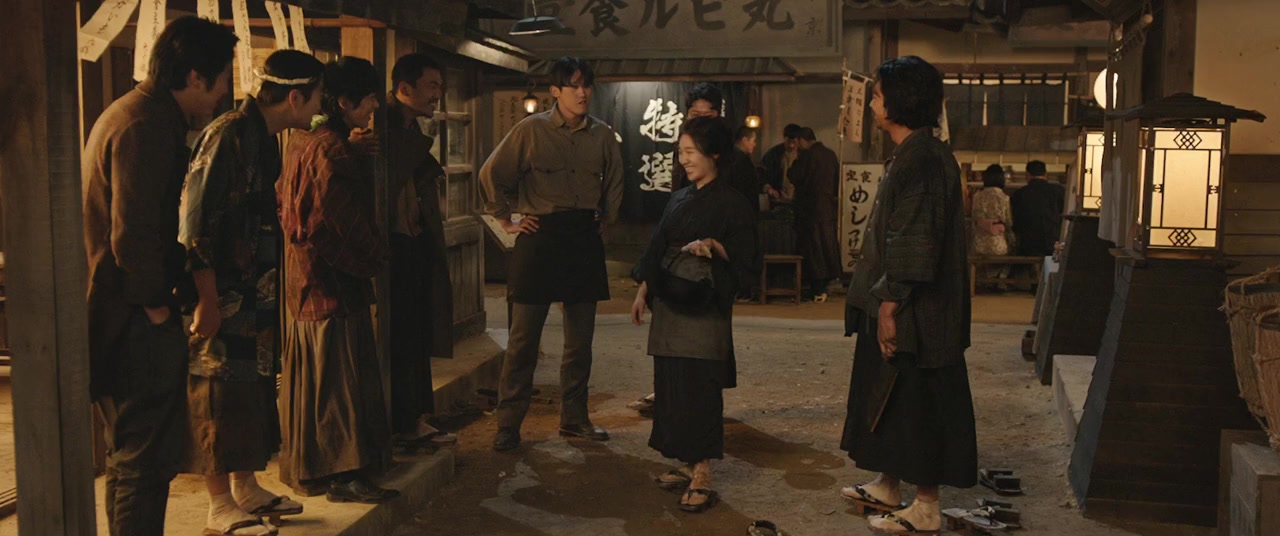
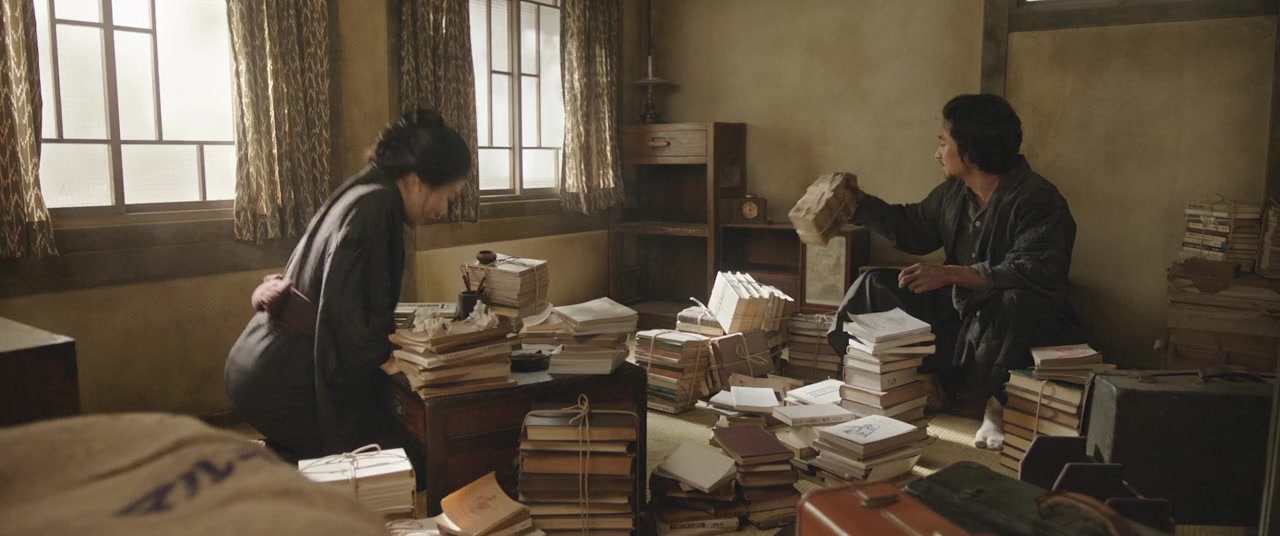
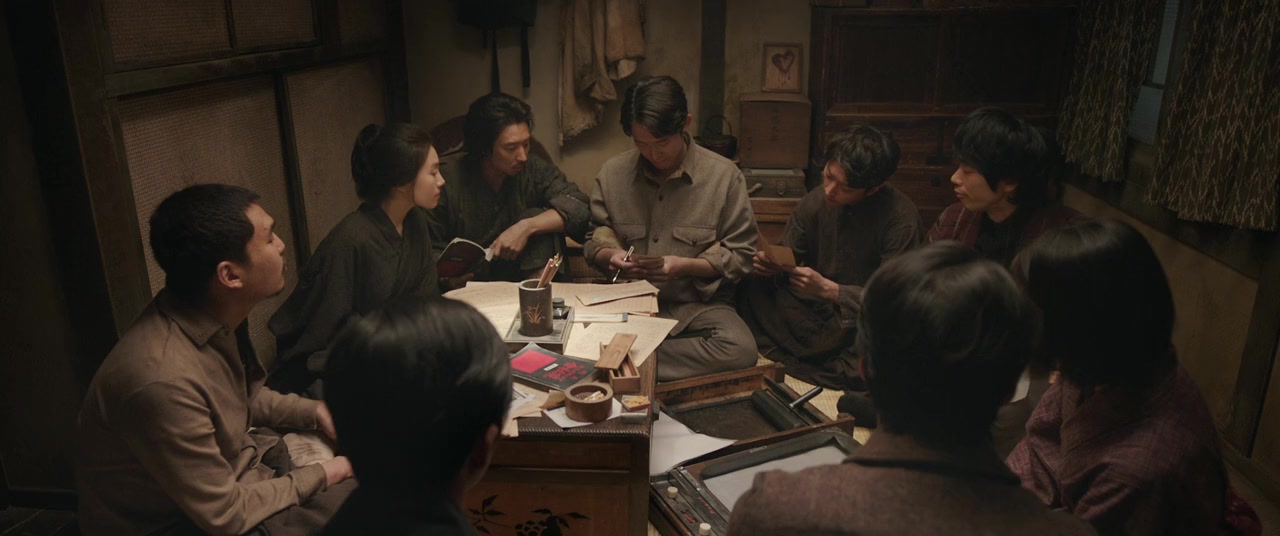
Anarchist from Colony Torrents Download
| 720p | bluray | 1.16 GB | magnet:?xt=urn:btih:C661448140D4C33A475BC08B50BF73ACD1550EA0 | |
| 1080p | bluray | 2.37 GB | magnet:?xt=urn:btih:3A7CB10290FD8305B7B30064C1281C0E40044135 |
Anarchist from Colony Subtitles Download
Anarchist from Colony Movie Reviews
Anarchy, Mon Amour
The imperial capital of Tokyo in the early 1920s, and revolution is in the air. In Japanese-occupied Korea, a declaration of independence was read out to the crowd gathered at Tapgol (Pagoda) Park in what is now Seoul on March 1, 1919. This event ignited the March First (Sam-il) Movement against Japanese rule, which began in 1910 with the peninsula’s official “annexation.” Korean anarchists and nationalists (and their Japanese counterparts and sympathizers) are at work inside Japan as well. One of them is Park Yeol, an ardent opponent of the Japanese occupation who soon finds a lover and soul-mate in Fumiko Kaneko, a Japanese woman. Together with her, Park and his followers experiment with bombs that could be used in their cause. In a piece of sarcastic nose-thumbing, the band call themselves “Futeisha” (The Futei Society), taking “futei” from the expression “futei Senjin” (insubordinate Koreans) that was typically applied to those who would not accept Japanese domination. Then something literally earth-shaking happens: the Great Kanto Earthquake, which struck on September 1, 1923. (The quake took the lives of more than 100,000 in Tokyo and neighboring cities, or about as many as the horrific fire-bombing of the city that was going to come in March 22 years later.) In its aftermath, thousands of Korean residents of Tokyo and other areas (estimates run as high as about 9,000) are massacred at the hands of troops and vigilantes as well as mobs whipped into a hysteria by rumors of poisoned wells. This is partly at the instigation of Home Minister Rentaro Mizuno, who was on the scene of the attempted assassination in September 1919 of the newly appointed Japanese governor-general by Kang Wookyu in a Seoul railway station after being sent over to quell the disturbances sparked by Sam-il, and was subsequently fond of railing against “insubordinate Koreans.” Park and crew are arrested just two days later, and eventually charged with “daigyaku” (high treason) for intending to kill the then-reigning Emperor Taisho and his crown prince Hirohito, who later became Emperor Showa, on the occasion of the latter’s marriage scheduled to take place in the fall of 1923. (As things turned out, Daisuke Namba, a radicalized Japanese day laborer, made an attempt on Hirohito’s life in December of the same year in the Toranomon Incident, which Park is informed of in the movie.)
The above is the territory covered by the heady first half of “Park Yeol”. The second half, which unavoidably seems to drag by comparison, focuses on the imprisonment and trial of Park and Kaneko, their devotion to each other (indeed, the Japanese title, which translates “Park Yeol and Kaneko Fumiko,” frames the flick like a love story), and the dueling between Park and Mizuno. The movie is conventional enough – no parallel universes, CG effects, impossibly convoluted plots, or jumps back and forth in time – and wisely lets the stirring story tell itself. It is also studded with little incidents that may seem like embellishments but actually derive from historical fact, such as Park’s use of the emperor’s portrait as a target for knife-throwing practice, the way Kaneko tears up the imperial pardon commuting her death sentence to life right in the face of the guard, the traditional Korean attire worn by the pair in court, and the scandalous photo taken of them in prison, Park’s left hand draped casually over Kaneko’s breast as she apparently sits on his lap.
While Moon Choi received many “best new actress” awards for her Kaneko, the portrayal was too perky and not very believable for me. Lee Jehoon, on the other hand, delivers a bravura performance as Park and carries the movie. Kim Inwoo presents a delightful interpretation of the villainous Mizuno.
One of the really impressive things about “Park Yeol” is the excellence of the Japanese spoken by the all-Korean cast. Kim in particular does a wonderful job wielding the jargon of a Japanese minister of the period, and one Japanese reviewer remarked how well Moon, who lived in Japan for a while, mimicked Korean spoken with a Japanese accent. This attention to linguistic authenticity reminded me of the bilingual brilliance demonstrated by the cast in Park Chanwook’s “The Handmaiden,” which is also set in the colonial period and equally worth seeing.
I saw “Park Yeol” in a theater in Yokohama. By ironic coincidence, it was May 1, a holiday celebrating the accession to the throne by Emperor Naruhito, the grandson of Park’s target, after the abdication by Akihito, the son, just the day before. The surprisingly capacity crowd listened in utter silence to Park’s scathing denunciations of the colonization and the whole imperial system. The former ended with the war, but the latter, of course, remains, albeit in altered form, and many points in Park’s fiery tirades about it are not entirely irrelevant today. Perhaps at least a few of them still rang true to others in the audience, as they did for this reviewer. It was almost as if Park had been resurrected just for the occasion. Cinema rules.
J. Koetting.
Dramatic biopic with a few lengths
Anarchist from Colony is a drama and biopic about Korean anarchist Park Yeol , carefully directed by Lee Joon-ik who is known for his numerous intellectual historical period drama movies.
There are several positive elements about this film. First of all, the acting is flawless. Lee Je-hoon convinces as wild idealist who meanders between determination, emotivity and madness. Choi Hee-seo convinces as his seemingly joyful girlfriend and soulmate who only masks her hideous past. The portrayal of the characters seems to be quite authentic as the viewers might feel both disgust and sympathy for certain actions of the two anarchists. The story is based upon true events as the two main characters got arrested for planning to kill the Japanese heir apparent in the late twenties when Koreans living in Japan had to face racism, persecution and even genocide. Secondly, the settings of the movie bring the early twenties in Japan back to life without too many visual special effects. The locations are simple but efficient, the costumes are varied and authentic and even cultural, political and social aspects back in those days are carefully interwoven. Even though this movie obviously shows us the Korean side of those historical events and shows numerous Japanese characters portrayed as closed-minded, megalomaniac and racist, the film also shows Japanese people showing respect to the two anarchists and insists multiple times that the Japanese government and monarchy was at fault and not the people themselves. From that point of view, the movie doesn’t feel overtly patriotic and rather balanced which is a third positive element.
On the other side, Anarchist from Colony is also far from being a masterpiece. With a running time above two hours, the movie feels plodding and stretched at times, especially in the middle section. A more vivid pace with some additional scenes related to the gruesome massacre of Koreans and other historic events would have made this film even more immersive. On the other side, cutting between twenty and thirty minutes of the lengthy scenes in prison would have improved this film’s flow.
In the end, Anarchist from Colony might interest you if you are genuinely interested in Korean history and if you have a weakness for dramatic biopics. At times, the film felt closer to a documentary than a regular feature. The acting performances, the detailed settings and the fact that the film avoided being too propagandist are this movie’s highlights while the film is overall too long and quite plodding at times.
Interesting subject matter
The events covered by this movie should be widely known. In 1923 after an earthquake in Tokyo the Japanese massacred 6000 Koreans in Japan. Later they tried to frame an independence activist Park Yeol for attempting to assassinate Hirohito to excuse the massacre. The movie shows some good Japanese who didn’t like the imperialist agenda.
There isn’t enough of the massacre in this movie. It was like practice for Nanjing. So more could have been shown. The focus is on the activist, his Japanese lover who was also an activist sympathetic to the Korean cause. Their over the top personalities are captured by the animated performances of Lee Je Hoon and Choi Hee Seo. Some might find the trial and imprisonment a little draggy but that’s what happened to him.
Interesting subject matter. Still worth a watch.

